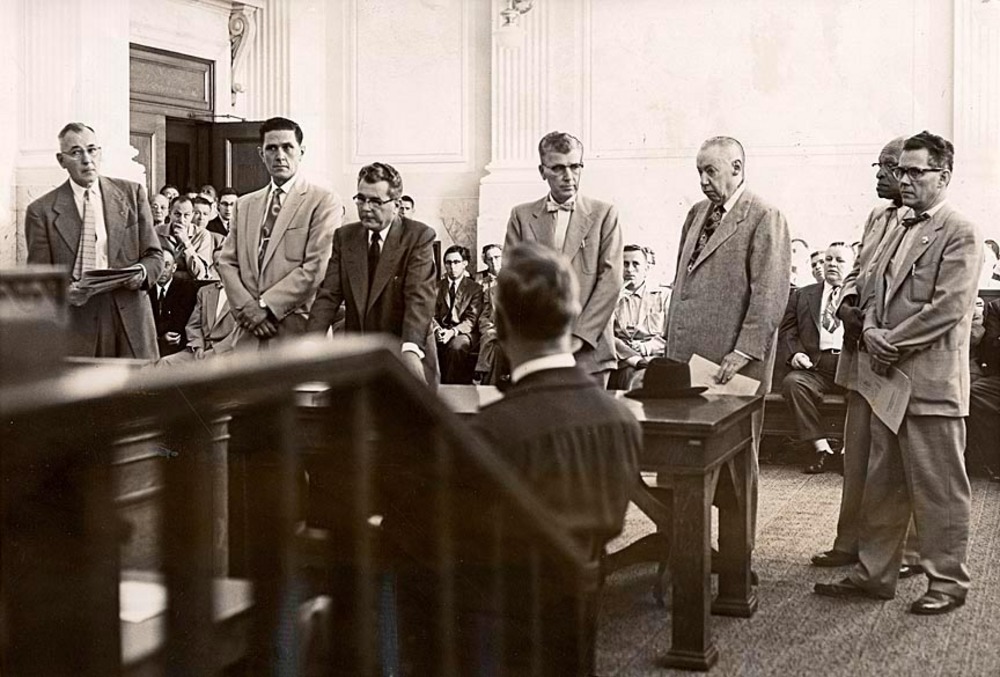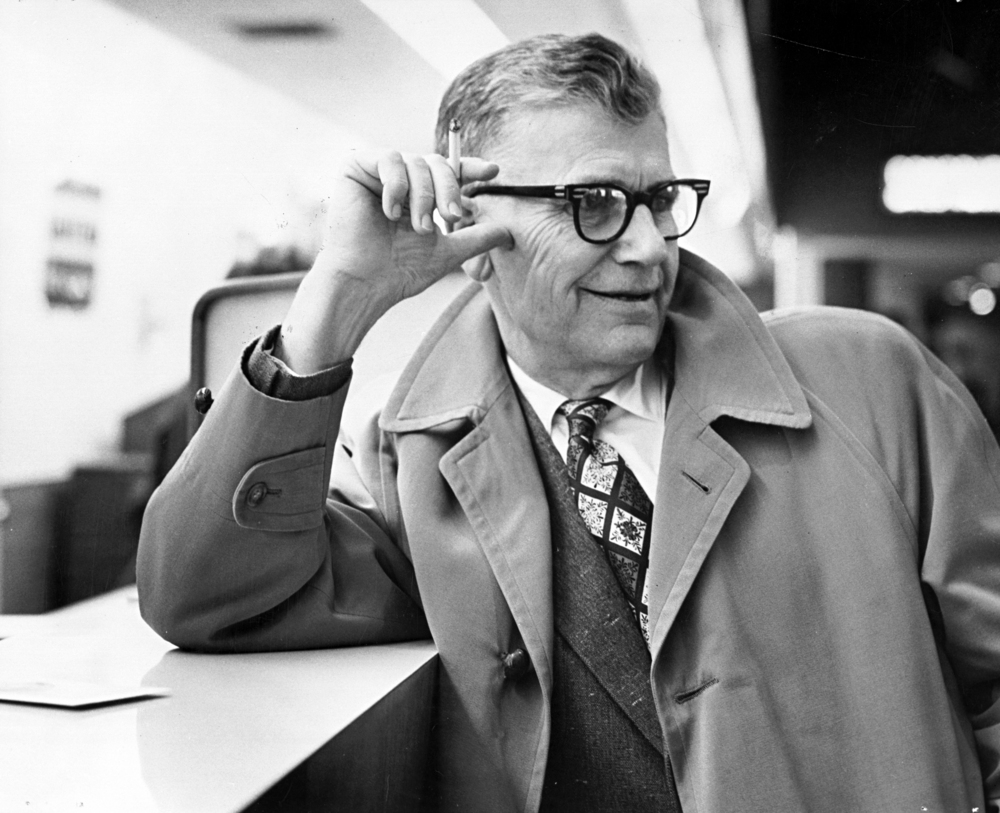Portland's notorious history of racketeering played a role in the creation of the U.S. Senate Select Committee on Improper Activities in the Labor or Management Field, commonly called "The McClellan Committee." Initiated by the U.S. Senate on January 30, 1957, the committee's work helped to explain the dynamic of labor politics, political corruption, organized crime, and attempts at reform in many cities, including Portland. While this was not the first time the government had investigated labor unions, the revelations and conclusions of the McClellan Committee had a tremendous impact on the public's perception of labor unions, particularly the Teamsters Union.
Union racketeering had long been a matter of public concern, and for some years the Federal Bureau of Investigation and the U.S. Senate had been gathering evidence on the questionable organizational tactics of local Teamsters bosses, to say nothing of the flamboyantly illegal activities of its most prominent leaders. In April 1956, Oregonian investigative reporters Wallace Turner and William Lambert—using information provided by Portland's own infamous crime boss, James Elkins—launched a series of articles that exposed the city's organized crime rackets and municipal corruption. Most damningly, the Oregonian reporters unwrapped a scheme by corrupt Teamsters Union officials to take over Portland's vice rackets. The Teamsters had the power to control many industries simply by refusing to deliver goods and supplies. Thus, crooked union representatives were able to force taverns, clubs, and grocery stores to accommodate gambling machines owned by Teamster-backed vice racketeers. [see "Coin Machine Men"]
These reports of labor racketeering from Portland and around the country inspired powerful leaders in the U.S. Senate, particularly Democratic Senator John McClellan and his Chief Counsel Robert Kennedy, to investigate racketeering by union officials in many U.S. cities. By 1957, the McClellan Committee concluded that Portland's organized crime problem was far from self-contained; it had national implications. "Were it not that the conspirators in this particular case had a falling out," the McClellan Committee concluded in its 1958 interim report, "the Committee believes that gambling and law enforcement in Portland would now be completely under the domination of a teamster-backed [sic] underworld. In other cities of the United States, where similar tactics have been employed, this type of domination has been achieved successfully." Evidence collected by the McClellan Committee suggests that Portland experienced labor racketeering, organized crime, and political corruption on a level comparable to much larger cities such as New York City, Chicago, Los Angeles, and Detroit.
-
![]()
Racketeering trial of Jim Elkins and other alleged conspirators.
Oregon Historical Society Oregon Journal Collection
Related Entries
Map This on the Oregon History WayFinder
The Oregon History Wayfinder is an interactive map that identifies significant places, people, and events in Oregon history.
Further Reading
Kennedy, Robert. The Enemy Within, New York: Harper & Brothers, 1960.
Oregonian, April 13-May 11, 1956.
Report, Portland Special Agent in Charge (unidentified) to Director, October 17, 1937, FBI 69-516-17.
U.S. Congress, Senate, Select Committee on Improper Activities in the Labor or Management Field, Hearings Before the Select Committee on Improper Activities in the Labor or Management Field, 85th Cong., 1st sess. (February-March 1957), Parts 1-4.
U.S. Congress, Senate, U.S. Senate, Interim Report of the Select Committee on Improper Activities in the Labor or Management Field, 85th Congress, 2d sess., March 24, 1958.


